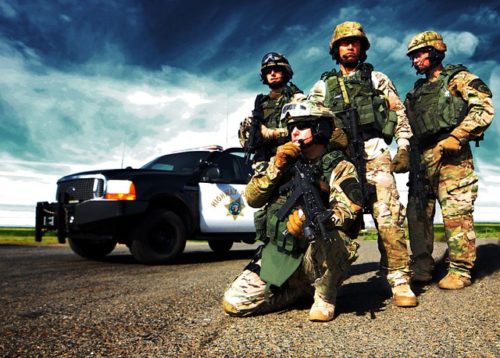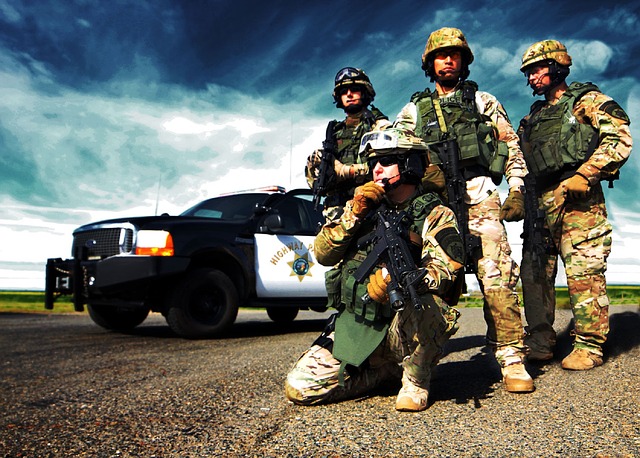
The 15-year history of “swatting” should be borne in mind as several states and the federal government accelerate the push for “red flag laws,” also known as “emergency risk protection orders.”
It was in 2004 that a new and potentially deadly phenomenon appeared on the American legal landscape. That was the year a 14-year old boy, upset over being spurned in his sexual advances toward a girl, called in a false crime report designed to dispatch a SWAT team to the girl’s family’s home. Since then, there has been a surge in the number of cases in which calls or internet communications to law enforcement units claim that serious — but false — circumstances are about to unfold or have just taken place, which therefore requires immediate and serious law enforcement response against the “swatter’s” targeted victim.
The majority of swatting incidents thankfully have not resulted in serious injury or death, but there have been tragic exceptions. In one extreme swatting case in 2017 in Wichita, Kansas, for example, an innocent man was shot dead by a SWAT team responding to a false call from an irate “Call of Duty” player. The case spawned criminal charges against the alleged swatter that have yet to be resolved, but not charges against the police. Other cases have resulted in civilians and police officers being shot as a result of such surprise raids on the homes of unsuspecting victims.
Accurate figures on the number of swatting cases occurring each year are difficult to come by, especially since many jurisdictions, including the federal government, do not have explicit “anti-swatting” laws (such measures have been introduced in the Congress, but none has thus far made it to a president’s desk for signature). However, the number of such cases is estimated to be at least in the many hundreds each year.
The number of these cases is not likely to decrease anytime soon. This is because of the availability of increasingly sophisticated apps with which pranksters and evildoers can scour databases to obtain identifying information on victims to target. Moreover, improved and sophisticated technology allowing swatters to disguise the locations from which they make their calls and to hide other potentially identifying evidence from the authorities, continues to be available on the open as well as the dark web.
Even as police departments grapple with the already serious problem of swatting, another and similar potential problem looms. There is the distinct possibility that red flag gun confiscation orders that have been adopted in a number of states since the February 2018 mass shooting at a high school in Parkland, Florida, will be abused by disgruntled family members, paramours, or others by making false or exaggerated allegations against a firearms owner who then becomes the target of a surprise police raid to seize his firearms.
While red flag laws incorporate measures intended to guard against the type of malicious pranksters that have caused the surge in swatting incidents, the laws allow for gun confiscation orders to be issued without notice to the intended targets, leading to surprise raids; also, the evidence required for the orders to be granted is troublingly vague in virtually every instance, and can be as easily abused as lawfully employed.
When swatters call in false information to police, they allege imminent and serious incidents, such as bomb threats, murder or armed hostage-taking, clearly designed to result not in routine dispatch of blue-uniformed officers, but rather heavily armed SWAT squads of the type today maintained by virtually every police department in the country. This same scenario will likely occur also when executing many red flag orders, which by their express terms apply to circumstances involving firearms and persons alleged to pose a serious risk to themselves or others.
For legislators thinking about enacting red flag laws, the swatting phenomenon should serve as more of a “red flag” than it has thus far.
Bob Barr (@BobBarr) represented Georgia in the U.S. House of Representatives from 1995 to 2003. He currently serves as president and CEO of the Law Enforcement Education Foundation.
Originally published in the The Daily Caller. Reproduced with permission from FORMER REP. BOB BARR
